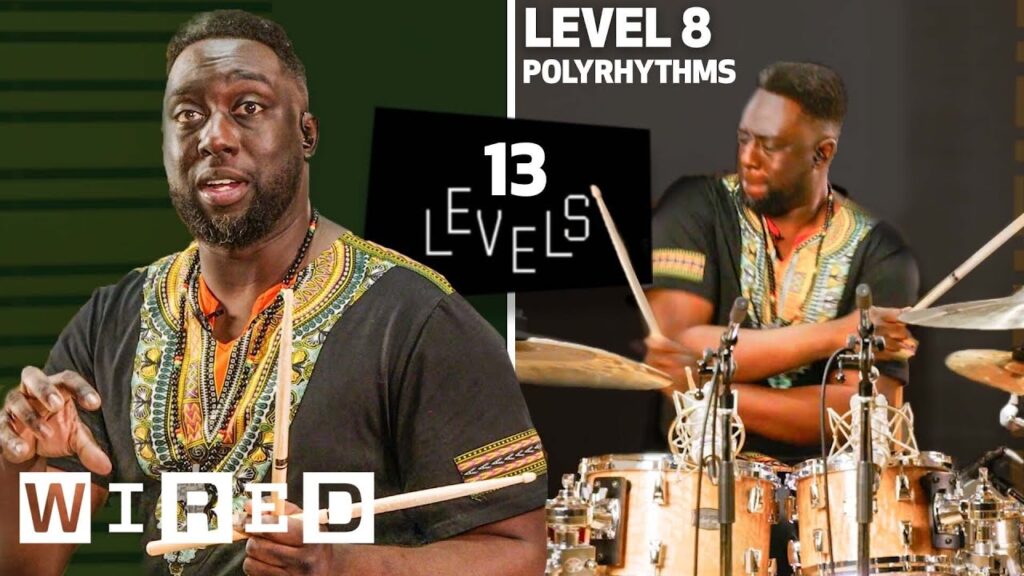Why We Know More About Space Than The Ocean: A Q&A with Bill Nye
Summary
In this episode of Science Support, Bill Nye responds to viewers’ science questions, ranging from space and physics to oceanography and biology. He explains our current knowledge gaps about the ocean, the challenges of teleportation, and the promising potential of solar sails in space exploration, among other topics. The speaker also touches on refining our understanding of the laws of physics and the likelihood of aliens existing. However, the conversation takes an unexpected turn when asked about insects and gravity.
Table of Contents
- Why do we know more about space than the ocean?
- Is it possible to teleport humans?
- Can tardigrades settle on the moon?
- What happens when neutrons are fused together?
- Is Earth’s ocean boiling due to contact with the mantle?
- Do aliens exist?
- How have the laws of physics been refined over time?
- What is the potential of solar sails in space exploration?
- Do insects feel gravity differently than humans?
Introduction
As humans, we always have an insatiable thirst for knowledge. From our earliest days, we have gazed up at the stars and wondered about the vast and uncharted universe beyond our planet. However, we are also fascinated by the wonders just below our feet, less explored but no less extraordinary. In this episode of Science Support, Bill Nye answers questions about the mysteries of space, the ocean, and everything in between.
Q&A
Why do we know more about space than the ocean?
Bill Nye explains that space is easier to study than the ocean because it’s not cold, crushing, and corrosive. He also notes that humans have not been able to send cameras and sensors into all parts of the ocean, making it more difficult to explore. Additionally, he discusses the fact that we have not developed technologies that allow us to study deep-sea creatures without harming them.
Is it possible to teleport humans?
According to Bill Nye, teleporting humans is practically impossible due to the “information problem.” No existing technology can currently capture all the necessary information about an object or person in one instant and then use that information to rebuild it somewhere else. Therefore, the concept of teleportation remains firmly in the realm of science fiction for now.
Can tardigrades settle on the moon?
While tardigrades are known for their resilience and ability to survive in extreme conditions, Bill Nye explains that they cannot settle on the moon as they would need the right environment to reproduce and thrive. Additionally, the crash landing they experienced when they were previously sent to the moon would likely harm or kill them.
What happens when neutrons are fused together?
When neutrons are fused together, they create mass and release energy, according to Bill Nye. This process is the fundamental principle behind nuclear fusion, which has the potential to generate large amounts of clean energy. Although fusion is not yet a practical energy source for us, research is ongoing to make it a reality in the future.
Is Earth’s ocean boiling due to contact with the mantle?
Contrary to what some may believe, the Earth’s ocean is not boiling due to contact with the mantle. Bill Nye explains that the small amount of heat that the Earth radiates into space takes away the same amount of heat that is conducted into the ocean. Therefore, the ocean is kept at a constant temperature and doesn’t boil.
Do aliens exist?
Bill Nye believes that it’s highly probable that aliens exist. With an estimated two trillion planets in the Milky Way galaxy alone, it seems plausible that life could evolve elsewhere. However, he cautions that while aliens may exist, the likelihood of us being able to communicate with them is low due to the vast distances between us.
How have the laws of physics been refined over time?
The laws of physics have been refined over time as we learn more about the universe and its workings. For example, relativity and quantum electrodynamic have been discovered, which refine our understanding of Newton’s laws but don’t necessarily render them incorrect. The speaker notes that science is constantly evolving, and what we believe today may change in the future as new discoveries are made.
What is the potential of solar sails in space exploration?
Solar sails are a promising technology for space exploration, according to Bill Nye. Sails can use sunlight to help propel spacecraft, allowing them to travel further and faster. Certain missions, such as those with long timeframes or intended for deep space, are ideal for solar sails due to their gradual acceleration.
Do insects feel gravity differently than humans?
The speaker notes that insects, in fact, behave based on how they perceive gravity. However, the example of spiders was given as not behaving based on a different understanding of gravity, but rather because spiders are not a type of insect.
Conclusion
As we continue to explore the mysteries of the universe, we are constantly reminded of just how much we still don’t know. From the depths of the ocean to the far reaches of space, there is always more to learn and discover. As Bill Nye notes, our understanding of the world around us is constantly evolving, and we must continue asking questions and pursuing knowledge to make sense of it all.







